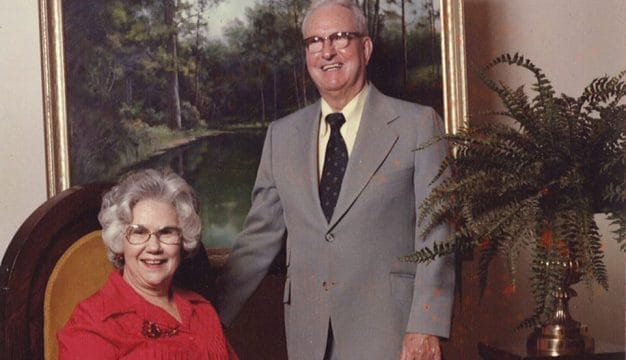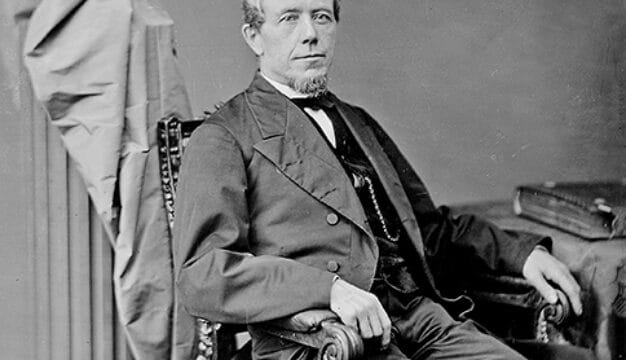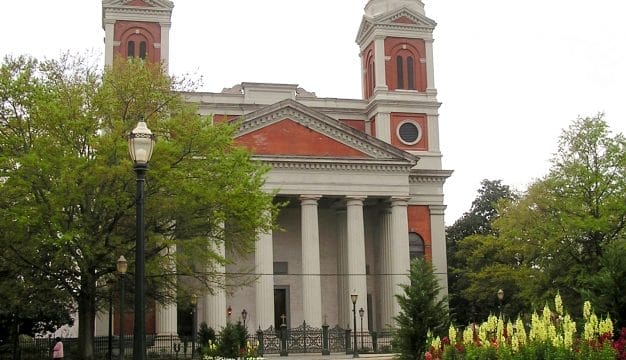Sidney Lanier
The literary efforts of writer Sidney Lanier (1842-1881) are generally associated with the state of Georgia, yet he can very rightfully be counted among Alabama‘s intellectuals and literary figures. Alabama is where Lanier wrote his first and only novel, Tiger-Lilies, and also penned poetry. Lanier is best known today for his compositions in verse, which fuse his love for Anglo-Saxon literature with his admiration for the natural world, but his wider body of poetry was popular with other leading poets and critics of his day.
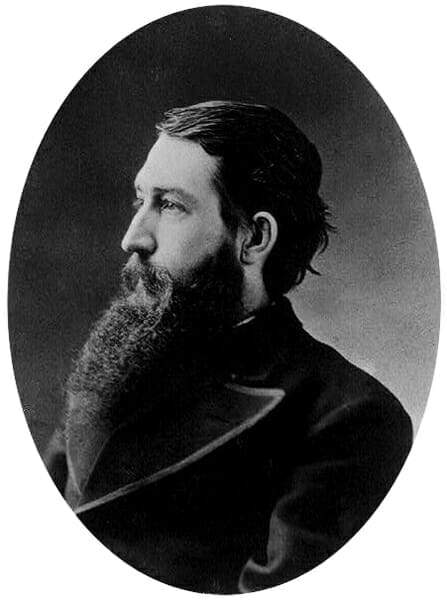 Sidney Lanier
Sidney Clopton Lanier was born in Macon, Georgia, on February 3, 1842, to Robert Sampson Lanier and Mary Jane Anderson. He had one brother, Clifford, and a sister, Gertrude. He graduated from nearby Oglethorpe College in Midway, Georgia, in 1860 at the top of his class. During his formative years, he developed a love for music and became proficient on the flute but also learned to play banjo, guitar, violin, and piano.
Sidney Lanier
Sidney Clopton Lanier was born in Macon, Georgia, on February 3, 1842, to Robert Sampson Lanier and Mary Jane Anderson. He had one brother, Clifford, and a sister, Gertrude. He graduated from nearby Oglethorpe College in Midway, Georgia, in 1860 at the top of his class. During his formative years, he developed a love for music and became proficient on the flute but also learned to play banjo, guitar, violin, and piano.
At the outbreak of the Civil War, Lanier enlisted in the Confederate Army in April 1861 as one of the Macon Volunteers, who were part of the Second Georgia Battalion. He fought briefly near Richmond, Virginia, and later, in 1864, became a signal officer, working onboard Confederate blockade runners in Virginia and North Carolina. He was captured in early November 1864 onboard the steamer Lucy by the USS Santiago-de-Cuba and spent five months in the Union prison at Point Lookout, Maryland. While there, he contracted tuberculosis, which plagued him for the rest of his life; he would travel widely after the war in a vain search for a cure.
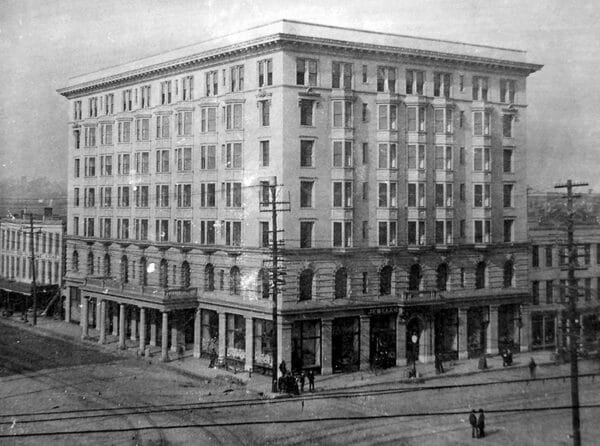 Exchange Hotel, 1909
Early in 1865, Lanier was released through a prisoner exchange and with the help of gold smuggled into the prison by a friend, according to accounts. He returned to Macon and took a teaching job before moving to Montgomery, Alabama, where he worked as a clerk at the Exchange Hotel (owned by his paternal grandfather, Sterling Lanier) from 1865 to 1867 and played the organ for the First Presbyterian Church in Prattville, Autauga County. It also was during this time that Lanier penned his only novel, Tiger-Lilies (1867), which he composed in only three weeks. Set during the Civil War, the novel focuses on the lives of a wealthy southern couple in a plot that navigates through a duel, the outbreak of the war, and murder. It opens with a deer hunt in east Tennessee that brings together a cadre of young men in the Sterling family home of Thalberg, an idealized place of intellectualism and art. The novel is largely experimental, and the focus is primarily on artistic expression and philosophy rather than literary realism. Lanier came to consider the novel insubstantial and later discouraged additional printings.
Exchange Hotel, 1909
Early in 1865, Lanier was released through a prisoner exchange and with the help of gold smuggled into the prison by a friend, according to accounts. He returned to Macon and took a teaching job before moving to Montgomery, Alabama, where he worked as a clerk at the Exchange Hotel (owned by his paternal grandfather, Sterling Lanier) from 1865 to 1867 and played the organ for the First Presbyterian Church in Prattville, Autauga County. It also was during this time that Lanier penned his only novel, Tiger-Lilies (1867), which he composed in only three weeks. Set during the Civil War, the novel focuses on the lives of a wealthy southern couple in a plot that navigates through a duel, the outbreak of the war, and murder. It opens with a deer hunt in east Tennessee that brings together a cadre of young men in the Sterling family home of Thalberg, an idealized place of intellectualism and art. The novel is largely experimental, and the focus is primarily on artistic expression and philosophy rather than literary realism. Lanier came to consider the novel insubstantial and later discouraged additional printings.
In 1867, Lanier relocated to Prattville, where he again took up teaching and also served as principal at Prattville Male and Female Academy. Lanier also studied law and was admitted to the Alabama State Bar. He also married Mary Day, who was from his hometown of Macon; they would have four sons. The couple returned to Macon in 1869 so he could work in his father’s law office. He eventually passed the Georgia bar and worked as a lawyer. Also during this time, he wrote several poems in the dialects of local poor white and black farmers in the Reconstruction South.
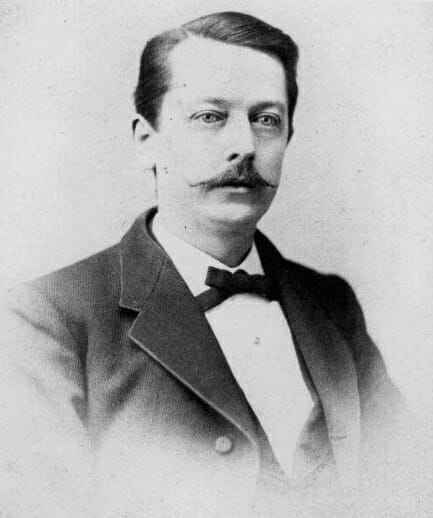 Clifford Lanier
Lanier moved to Baltimore, Maryland, in 1873 and found employment with the Peabody Orchestra playing the flute. He taught himself musical notation, eventually earned first chair as flutist with the orchestra, wrote a composition called “Black Birds,” and became famous for his performances of it. Additionally, Lanier also sold poems to magazines to support his family. Among his most famous compositions were “Corn” (1875), “The Symphony” (1875), “Centennial Meditation of Columbia, 1776-1876” (1876), and “The Song of the Chatahoochee” (1877). His most famous and accomplished piece, “The Marshes of Glynn” (1878), as well as the poem “Sunrise” (1881) were part of an unfinished sequence of lyrical nature poems called “Hymns of the Marshes,” inspired by the marshes in Georgia’s coastal Glynn County. It was also during this period that Lanier wrote “The Revenge of Hamish” (1878), which is widely considered one of his best poems.
Clifford Lanier
Lanier moved to Baltimore, Maryland, in 1873 and found employment with the Peabody Orchestra playing the flute. He taught himself musical notation, eventually earned first chair as flutist with the orchestra, wrote a composition called “Black Birds,” and became famous for his performances of it. Additionally, Lanier also sold poems to magazines to support his family. Among his most famous compositions were “Corn” (1875), “The Symphony” (1875), “Centennial Meditation of Columbia, 1776-1876” (1876), and “The Song of the Chatahoochee” (1877). His most famous and accomplished piece, “The Marshes of Glynn” (1878), as well as the poem “Sunrise” (1881) were part of an unfinished sequence of lyrical nature poems called “Hymns of the Marshes,” inspired by the marshes in Georgia’s coastal Glynn County. It was also during this period that Lanier wrote “The Revenge of Hamish” (1878), which is widely considered one of his best poems.
While in Maryland, Lanier studied at Johns Hopkins University in Baltimore, where he became a lecturer and faculty member. He specialized in the works of English writers of the Renaissance and the Middle Ages, including William Shakespeare and Geoffrey Chaucer. He penned a series of lectures entitled The English Novel (published posthumously in 1883) and a book entitled The Science of English Verse (1880), in which he explored the connections between musical notation and meter in poetry. Other publications by Lanier include essays on musical and literary topics and modernized versions of tales of knightly conquests, adapted for the youth of his day. These include: “The Boy’s Froissart” (1878), “The Boy’s King Arthur” (1880), “The Boy’s Mabinogion” (1881), and “The Boy’s Percy” (publish posthumously in 1882). Lanier also wrote two travelogues that were popular during his day: Florida: Its Scenery, Climate and History (1875) and Sketches of India (1876), although he never visited India.
At the age of 39, Lanier finally succumbed to complications caused by tuberculosis on September 7, 1881, while with his family near Lynn, North Carolina, where he had travelled in hopes of improving his health. His body was returned to Baltimore, where he was buried in Green Mount Cemetery, and he was honored with a large bronze and granite sculptural monument on the campus of the Johns Hopkins University.
Selected Works by Lanier
Tiger-Lilies (1867)
Florida: Its Scenery, Climate and History (1875)
“Corn” (1875)
“The Symphony” (1875)
“Centennial Meditation” (1876)
Sketches of India (1876)
“The Song of the Chatahoochee” (1877)
“The Marshes of Glynn” (1878)
“Revenge of Hamish” (1878)
The Science of English Verse (1880)
“Sunrise” (1881)
Additional Resources
De Bellis, Jack. Sidney Lanier. New York: Twayne Publishers, 1972.
Parks, Edd Winfield. Sidney Lanier: The Man, the Poet, the Critic. Athens: University of Georgia Press, 1968.
Snyder, Henry Nelson. Sidney Lanier. New York: Eaton & Mains, 1906.
Starke, Aubrey Harrison. Sidney Lanier, a Biographical and Critical Study. Chapel Hill, North Carolina: The University of North Carolina press, 1933.
